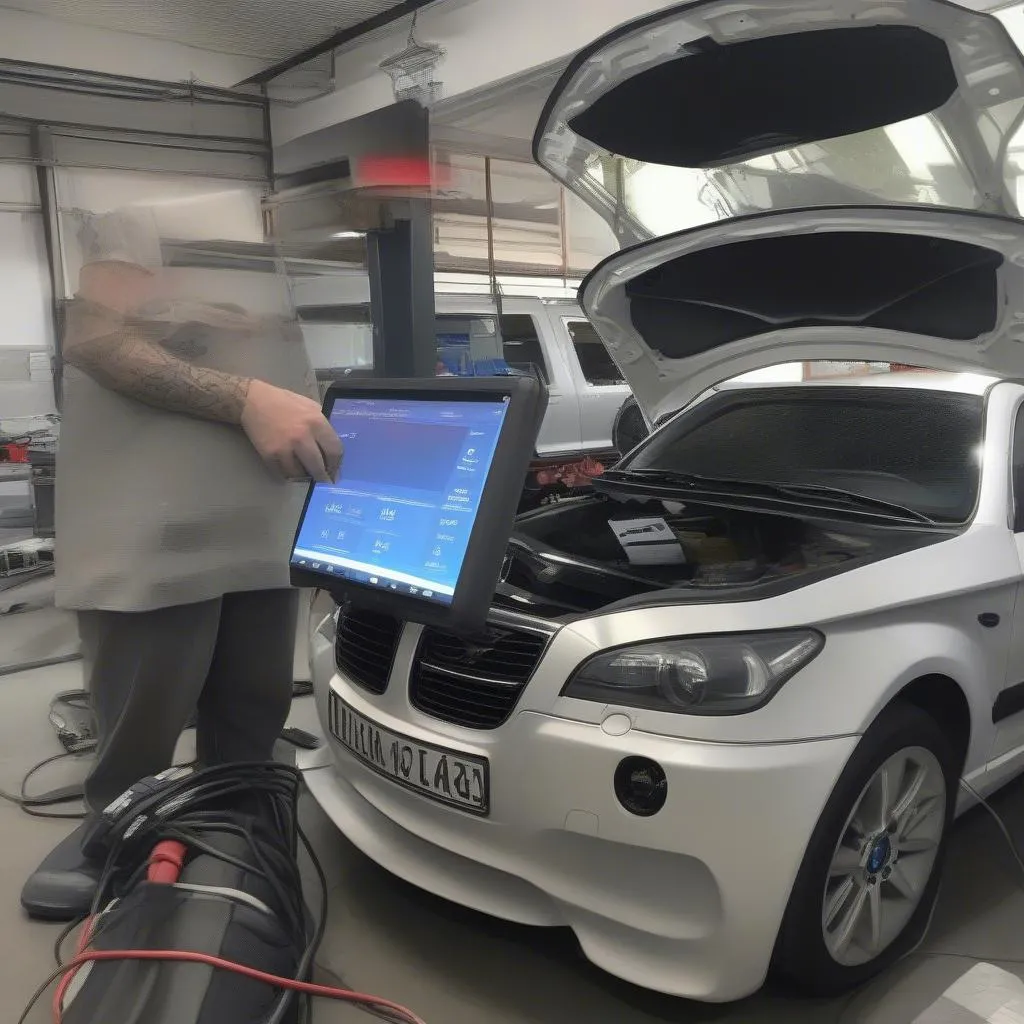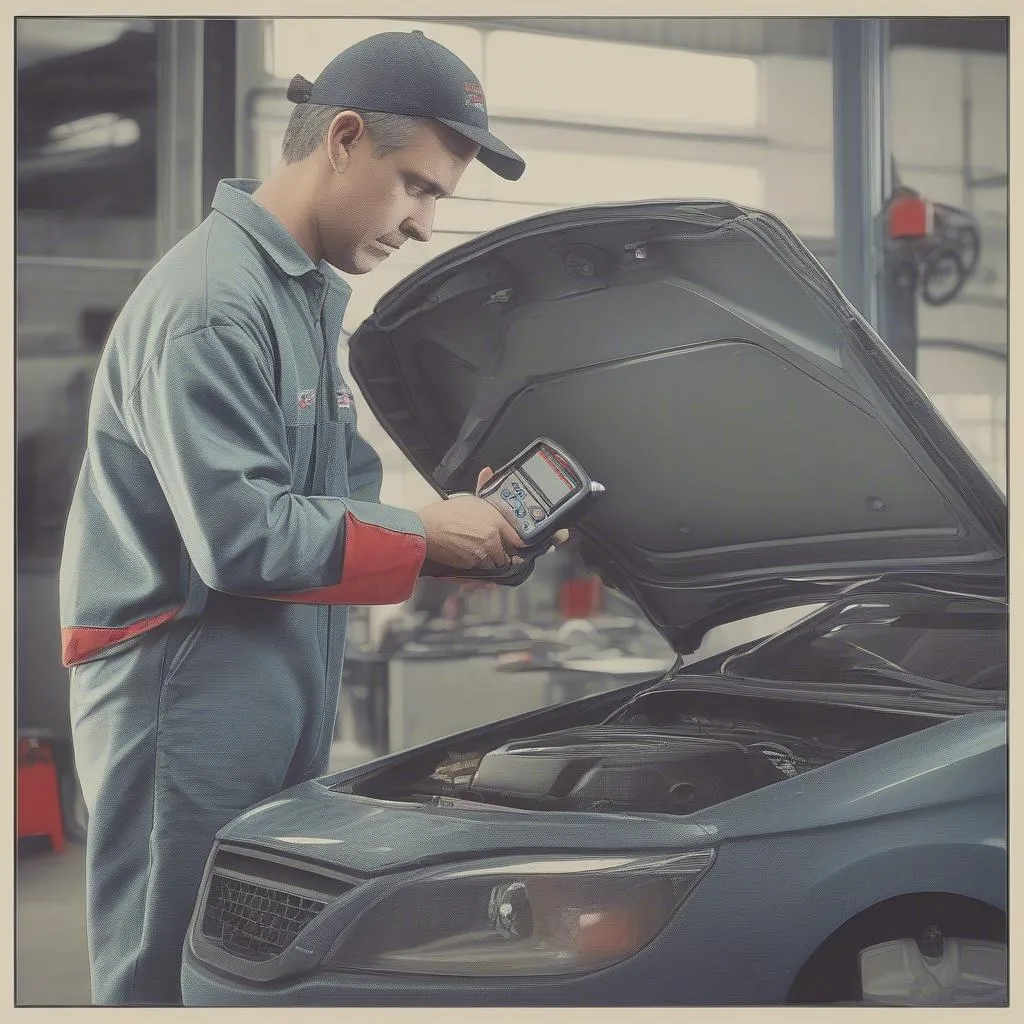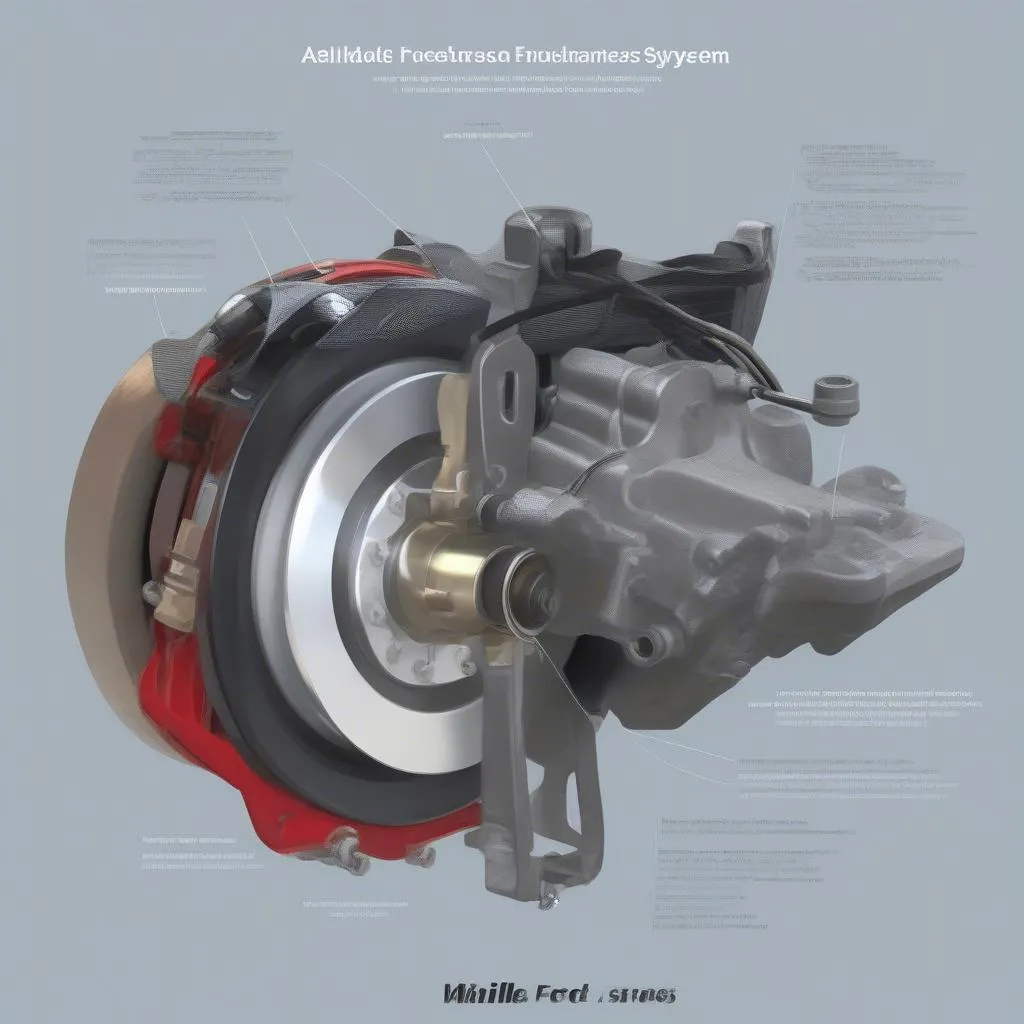You’re driving down the road, enjoying the open highway, when suddenly the ABS light on your dashboard flickers on and off. You might feel a little uneasy, wondering what’s going on. Maybe you’ve heard stories about ABS lights and the potential for a breakdown. Don’t worry, we’re here to help! We’ll explore the causes, diagnose the problem, and point you in the right direction to get your ABS system back in tip-top shape.
Understanding the ABS Light and Its Importance
The ABS (Anti-lock Braking System) is a safety feature designed to prevent your wheels from locking up during sudden braking. It works by electronically modulating the brake pressure to each wheel, allowing you to maintain steering control even when braking hard.
Think of a scene from a Hollywood action movie. Our hero is racing down a busy city street, trying to evade a relentless pursuer. Suddenly, the hero slams on the brakes. Without ABS, the wheels would lock up, causing the car to skid uncontrollably, possibly leading to a dangerous crash. But thanks to ABS, the hero’s car remains in control, allowing them to navigate the chaos and escape.
Causes of an Intermittent ABS Light
An intermittent ABS light can be caused by a variety of factors, ranging from a minor glitch to a serious issue. Some common causes include:
1. Faulty Wheel Speed Sensor:
These sensors play a critical role in the ABS system by measuring the speed of each wheel. If a sensor malfunctions, it can send incorrect information to the ABS module, triggering the warning light.
Think about it like a detective story. Imagine you’re a detective investigating a suspicious car accident. You need to gather evidence from the scene, including the speed of the vehicles involved. The wheel speed sensors act like your detective’s trusty evidence-gathering tools.
2. ABS Module Issues:
The ABS module is the brain of the system. It receives information from the sensors and controls the brake pressure. A malfunctioning ABS module can lead to an intermittent ABS light.
3. Wiring Problems:
Loose connections, broken wires, or corrosion can disrupt the communication between the ABS module and other components, causing the light to flicker.
4. Low Brake Fluid:
Low brake fluid levels can affect the proper operation of the ABS system.
Imagine a hydraulic system like a water fountain. The water pumps up to the top, powering the fountain. But if the water level drops, the fountain stops working. Similarly, the ABS system relies on brake fluid to maintain pressure.
5. Faulty Brake Components:
Damaged calipers, rotors, or brake pads can also contribute to an intermittent ABS light.
6. Electrical Noise:
In some cases, electrical noise from other components in the vehicle can interfere with the ABS system.
Troubleshooting the ABS Light
If you’re facing an intermittent ABS light, it’s crucial to diagnose the problem quickly and accurately. You might be tempted to ignore it, hoping it will go away on its own. But remember, your safety is at stake! Here’s a step-by-step approach:
- Check the Brake Fluid Level: Ensure the brake fluid reservoir is full and free from any contamination.
- Inspect the Wiring: Check for any loose connections, broken wires, or signs of corrosion in the ABS system’s wiring.
- Check the Wheel Speed Sensors: Use a diagnostic tool to check the sensors for any error codes or faulty readings.
- Scan for Error Codes: Use a code reader (like a Dealer Scanner) to identify any error codes stored within the ABS module.
 European Car Diagnostic Tool
European Car Diagnostic Tool
When to Seek Professional Help
If you’re not comfortable diagnosing the problem yourself, it’s essential to seek professional help from a qualified mechanic or auto technician. They have the necessary expertise and tools to pinpoint the exact issue and recommend the appropriate solution.
FAQs (Frequently Asked Questions)
Q: Can I still drive with an intermittent ABS light?
A: While you can still drive with an intermittent ABS light, it’s best to avoid hard braking and seek professional diagnosis as soon as possible. A faulty ABS system could compromise your safety in an emergency.
Q: How much will it cost to fix the problem?
A: The cost of repair depends on the underlying cause. A simple wiring issue might be a quick fix, while a faulty ABS module could require a more expensive replacement.
Q: How can I prevent ABS light issues in the future?
A: Regular maintenance is key to keeping your ABS system in good working order. This includes checking the brake fluid level regularly, inspecting the brake pads, and having your vehicle serviced by a qualified mechanic.
Q: Can a Dealer Scanner help with ABS light diagnosis?
A: Absolutely! A Dealer Scanner, especially one designed for European cars, can provide valuable insights into the ABS system. It can read error codes, analyze sensor data, and even perform tests on the ABS module itself.
 Bosch OBD Scanner
Bosch OBD Scanner
Conclusion
An intermittent ABS light is a warning signal that shouldn’t be ignored. By understanding the potential causes and following our troubleshooting steps, you can address the problem promptly and ensure your vehicle’s safety.
If you’re still unsure about the cause of the ABS light, or if you need professional assistance, don’t hesitate to contact us! Our team of automotive experts is available 24/7 to answer your questions and provide support.
WhatsApp: +84767531508
 ABS brake system illustration
ABS brake system illustration